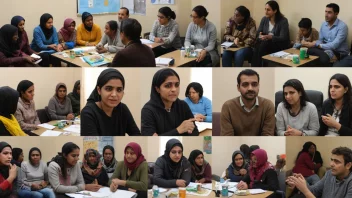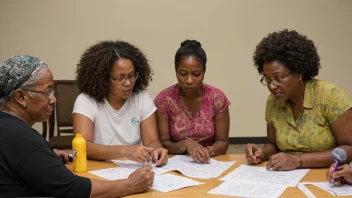Introduction
In this article, we will explore the critical role of mental health in the refugee resettlement process. Refugees often face immense psychological challenges due to their traumatic experiences, cultural transitions, and new environments. By understanding these challenges and taking actionable steps, individuals and communities can support the mental well-being of refugees. This guide will provide you with practical ways to make a difference.
Step 1: Educate Yourself About Refugee Experiences
Before you can effectively support refugees, it’s essential to understand their unique experiences and challenges.
- Read Literature: Explore books and articles that discuss refugee stories and psychological impacts.
- Attend Workshops: Participate in workshops or training sessions focused on refugee issues and mental health.
- Follow Organizations: Follow NGOs and organizations dedicated to refugee support on social media to stay informed.
Step 2: Volunteer with Local Organizations
Connecting with established organizations can be an excellent way to contribute your time and skills.
- Find Local NGOs: Research local non-profits that focus on refugee resettlement and mental health.
- Offer Your Skills: Whether you are a mental health professional or someone with organizational skills, your help can be invaluable.
- Engage in Community Events: Participate in events that raise awareness about refugee issues and promote mental health.
Step 3: Create a Welcoming Environment
Creating a supportive atmosphere is essential for refugees adjusting to a new life.
- Be Inclusive: Support cultural events that celebrate diversity and encourage community integration.
- Promote Language Exchange: Organize language exchange programs to help refugees communicate better.
- Foster Connections: Encourage friendships between refugees and local community members to build support networks.
Step 4: Advocate for Mental Health Resources
Advocacy is crucial in ensuring refugees have access to mental health services.
- Raise Awareness: Use your voice to highlight the importance of mental health for refugees in your community.
- Contact Policymakers: Write letters or emails to local officials advocating for mental health resources for refugees.
- Collaborate with Professionals: Work with mental health professionals to develop programs tailored to the needs of refugees.
Step 5: Provide Emotional Support
Sometimes, just being there for someone can make a significant difference.
- Listen Actively: Offer a listening ear to refugees who may want to share their experiences.
- Be Patient: Understand that adjusting to a new environment takes time and can be a slow process.
- Encourage Professional Help: If needed, gently encourage them to seek professional mental health support.
Step 6: Monitor Your Own Mental Health
Supporting others can be emotionally taxing, so it’s important to care for your well-being as well.
- Practice Self-Care: Engage in activities that nourish your mental health, such as exercise, meditation, or hobbies.
- Seek Support: Talk to friends or professionals if you feel overwhelmed by your volunteer work.
- Set Boundaries: Know your limits and don’t hesitate to step back when you need to recharge.
Conclusion
Supporting the mental health of refugees is a vital part of the resettlement process. By educating yourself, volunteering, creating welcoming environments, advocating for resources, providing emotional support, and caring for your own mental health, you can make a meaningful impact. Remember, every small action counts, and together we can help refugees navigate their new lives with dignity and hope.






